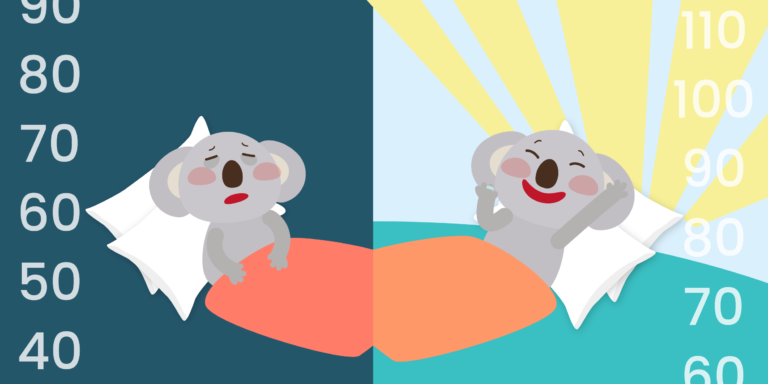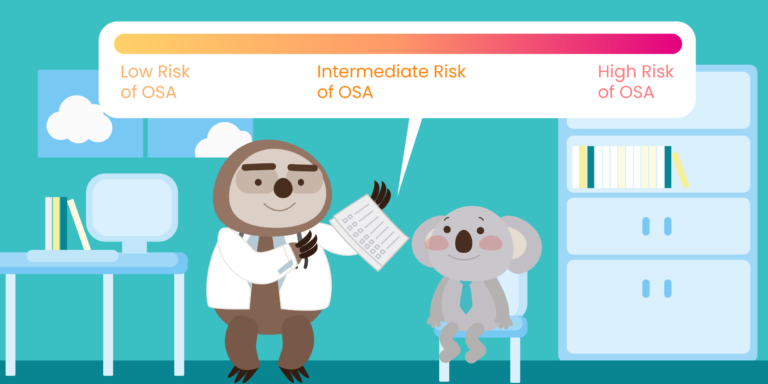Every morning, you wake up and prepare for a long drive to work. Not only are you still sleepy and somewhat dreading the workday (who amongst us doesn’t?), but are you always half-asleep at the wheel? Be careful! You may be facing sleep apnea symptoms and it may pose a serious threat to your safety on the road!
What is Sleep Apnea?
Sleep apnea is a sleeping disorder that causes breathing to stop suddenly during sleep. This disturbs a whole night’s sleep and may cause you to feel tired after waking up. Most people who are diagnosed with sleep apnea suffer from obstructive sleep apnea (OSA). When people are diagnosed with OSA, the common symptoms they (may) face on the road while driving include:
- Narcolepsy-like symptoms:
- Hypersomnia (excessive sleepiness during the daytime)
- Falling asleep while driving
- Decreased attention span
Some people also report having trouble falling asleep the night before driving.
Is Sleep Apnea common among drivers?
More than 30 million Americans suffer from sleep apnea, so yes! Many people behind the wheel may suffer from this condition. You are not the only one, but sleep apnea is treatable! There are many ways to get a sleep apnea diagnosis and many options on how to manage it before getting back on the road.
Sleep apnea is often seen among people who work long hours or night shifts, for example, medical workers or commercial drivers. Lack of sleep with additional underlying health issues, like sleep apnea, may cause even more daytime tiredness and a decreased attention span when driving or even when doing other daily activities.
In the case of commercial drivers, a study among random samples of commercial drivers by the University of Pennsylvania found that 28.1% of commercial drivers were reported to have sleep apnea (ranging from mild to severe sleep apnea). Commercial drivers have a higher tendency to suffer from sleep apnea compared to the general population due to belonging to a higher age group, or even being in a high-weight category, a consequence of their occupation requiring them to remain sitting for long periods of time.
Should I worry if I feel sleepy on the road?
Short answer? Yes. It’s always dangerous to drive when you’re tired.
Some people often report fatigue or daytime drowsiness, which may lead to confusion or even falling asleep, at the wheel. These are all symptoms of sleep apnea and could be concerning. Sleep apnea or insomnia may increase the risk of getting into an accident by 30% (University of Missouri). It is reported that drowsy driving causes 100,000 accidents every year, with 1,000 fatal crashes in the United States. (Bank Rate)
Although sleepiness is not necessarily always related to sleep apnea, getting a proper medical check-up or consulting a doctor is suggested to avoid potential road safety hazards. Whenever you notice that you are falling asleep on the road, be sure to stop driving as soon as possible no matter how inconvenient it is. Pull over and let someone else take the wheel. If this is not possible, find a safe location or pull over at a gas station and only continue your journey once you feel more awake. Take a few sips of coffee, or take a quick nap before continuing your journey. After facing this situation, be sure to consult a doctor immediately!
If your occupation requires you to drive long hours, consult a sleep specialist on how to start your sleep apnea treatment to make sure you’re not at risk on the road!
Can I still drive with Sleep Apnea?
After getting diagnosed with sleep apnea, comes the tougher part: you may need to stop driving for a certain period of time if you are diagnosed with moderate to severe sleep apnea. This little break gives you time to adopt proper treatment. Adopting proper treatment for sleep apnea can limit the severity of the symptoms and reduce risks associated with driving.
The Federal Motor Carrier Safety Administration (FMCSA) does not specifically address sleep apnea as a serious underlying health condition. However, if you are diagnosed with sleep apnea, it will be recorded in your medical history, reflecting the risk it poses to your driving capacities. You may not be medically qualified to operate any commercial vehicle in interstate commerce if you are diagnosed with moderate to severe sleep apnea. In this case, you will need to wait until receiving the proper treatment needed to ensure your safety on the road before getting back behind the wheel. However, there is always a solution for sleep apnea symptoms you face, and while getting the proper treatment, a driver will be medically qualified to drive again.
Will I lose my license if I have Sleep Apnea?
Having sleep apnea and driving on the road are two things that do not go together. Many people are worried about having their driving license revoked after getting diagnosed with sleep apnea. However, as long as individuals are committed to sleep apnea treatments assigned by their doctors, most people with sleep apnea would not get their driving license revoked if there are no sleep-related motor vehicle accidents or reported drifting off or falling asleep at the wheel.
Should I get diagnosed for Sleep Apnea?
If you notice you have been too drowsy or too tired on the road even after a couple of cups of coffee or tea, it is probably time to get a medical diagnosis and receive the proper medical attention for the sleep apnea symptoms you are facing.
It is better to be safe than sorry before getting on the road again and potentially facing more severe consequences of daytime drowsiness at the wheel. After getting the proper treatment for sleep apnea, you will feel an improvement in your health and will not feel tired after a full whole night’s sleep, and you can start driving again on the road!
Should commercial drivers get checked for sleep apnea?
In the commercial transportation industry, companies are bound to hold employer-mandated programs to monitor, diagnose and give treatment for drivers with sleep apnea. Although screenings for all commercial drivers are not mandatory, the Obama administration favored mandatory screenings for all active commercial drivers. So, it has become a “no-rules rule” for companies to do these screenings in the industry now.
Although commercial drivers are mostly reluctant to be tested for the condition, as it comes with the risk of losing their medical card, sleep apnea screening actually saves a lot of drivers’ lives and reduces companies’ costs too. Screening and treating commercial drivers after they are diagnosed with sleep apnea have helped a trucking firm save $441 for every driver per month with its employer-mandated OSA programs. (Virginia Tech Transportation Institute (VTTI)) Applying this kind of program would also help drivers’ medical burden and make sleep apnea treatment 100% covered.
According to VTTI, almost 50% of commercial vehicle drivers are included in the potential risk group of sleep apnea due to the higher possibility of weight gain and neck size. In the truck drivers’ category, about 33% of drivers might have sleep apnea, which is higher than the national average (6 – 17%).
“If you treat sleep apnea, not only will it make them healthier, it will make them better drivers.” – Jeffrey Hickman, a research scientist at Virginia Tech Transportation Institute
Sleep apnea treatment for commercial drivers won’t cost any commercial drivers their license or time since on-the-go treatment is also available nowadays, such as small CPAP machines and at-home sleep trackers. These small devices won’t cost companies a lot of money compared to the loss they may face if accidents occur. Drivers will still be able to be on the road while undergoing proper treatment, and companies will be able to ensure profit with a safe environment for their insured drivers.
Driving with Sleep Apnea is…
Not a problem as long as you have the proper ongoing treatments and constant consultation with your doctor. Getting tired after long hours of work or irregular sleep is normal, but if you are actually dozing off while driving, it is time to get medically checked and treated immediately. Drive safely!







